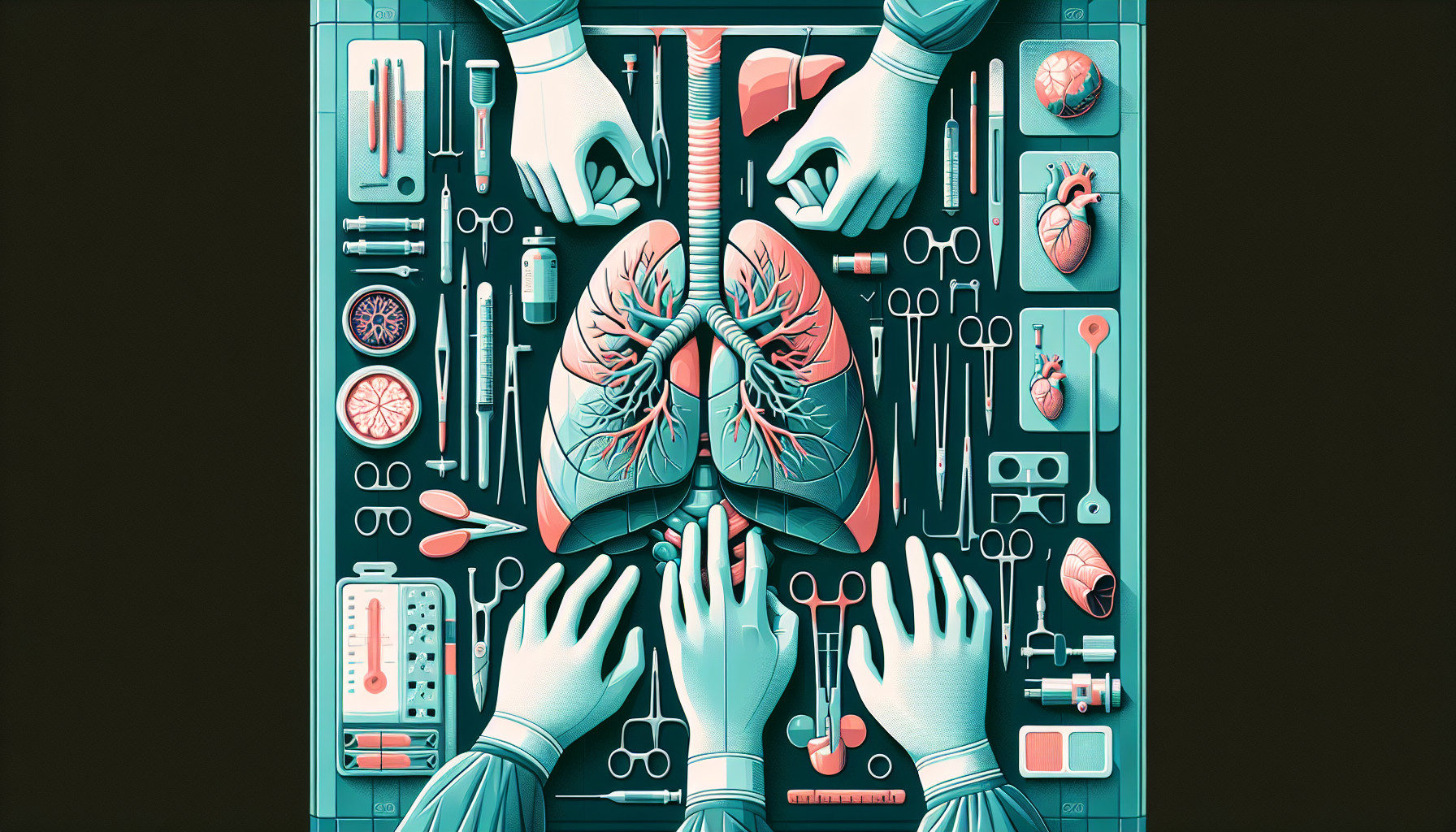Our Summary
This research paper looks at how using a type of biopsy (taking a sample of tissue for testing) can help doctors avoid unnecessary surgery for lung nodules (small masses of tissue in the lung) that are not cancerous. The method used is called CT-guided fine needle aspiration (FNA), where a thin needle is inserted into the lung nodule to take a sample, guided by a CT scan. The study found that people who had this type of biopsy before surgery were less likely to have surgery on non-cancerous nodules compared to those who didn’t have the biopsy. The biopsy was also found to be very accurate in identifying cancer. The results suggest that using this biopsy method more often before surgery could help to reduce the number of unnecessary surgeries on non-cancerous lung nodules.
FAQs
- What is the biopsy method mentioned in the research paper that helps avoid unnecessary surgery for lung nodules?
- How does the CT-guided fine needle aspiration (FNA) biopsy method work?
- According to the study, how effective was the biopsy in identifying cancerous lung nodules?
Doctor’s Tip
One helpful tip a doctor might tell a patient about lung resection is to quit smoking before and after the surgery. Smoking can impair lung function and slow down the healing process after surgery. Quitting smoking can improve lung function, reduce the risk of complications during and after surgery, and improve overall health outcomes. Additionally, maintaining a healthy diet, staying physically active, and following all post-operative care instructions provided by the medical team can also help promote successful recovery after lung resection.
Suitable For
Patients who are typically recommended for lung resection include those with lung cancer, especially those with localized tumors that have not spread to other parts of the body. Other patients who may be recommended for lung resection include those with benign lung nodules that are causing symptoms or are at risk of becoming cancerous. Additionally, patients with certain lung conditions such as bronchiectasis or lung abscesses may also be candidates for lung resection. Ultimately, the decision to recommend lung resection will depend on the specific circumstances of each individual patient and should be made in consultation with a healthcare provider.
Timeline
Before lung resection:
- Patient presents with symptoms such as persistent cough, chest pain, shortness of breath, or coughing up blood.
- Patient undergoes imaging tests such as chest X-ray or CT scan, which reveal a lung nodule.
- Doctor recommends a biopsy to determine if the nodule is cancerous.
- Patient undergoes CT-guided fine needle aspiration (FNA) biopsy to obtain a tissue sample from the nodule.
- Biopsy results show whether the nodule is cancerous or non-cancerous.
- If the nodule is cancerous, the patient may undergo lung resection surgery to remove the affected part of the lung.
After lung resection:
- Patient undergoes lung resection surgery, which may involve removing a portion of the lung or the entire lung.
- Patient may experience pain, discomfort, and difficulty breathing following the surgery.
- Patient stays in the hospital for a few days to recover and receive post-operative care.
- Patient may require physical therapy or rehabilitation to regain lung function.
- Patient undergoes follow-up appointments and imaging tests to monitor recovery and check for any recurrence of cancer.
- Patient may need ongoing treatment such as chemotherapy or radiation therapy, depending on the stage and type of lung cancer.
What to Ask Your Doctor
- What is a lung resection and why is it being recommended for me?
- Are there any alternative treatments or less invasive procedures that could be considered instead of a lung resection?
- What are the potential risks and complications associated with a lung resection?
- How will a lung resection affect my lung function and overall quality of life?
- What is the recovery process like after a lung resection and how long can I expect to be in the hospital?
- Are there any long-term effects or lifestyle changes I should be aware of after a lung resection?
- How successful is a lung resection in treating my condition and what are the chances of the condition recurring?
- Are there any specific criteria or tests that need to be met before proceeding with a lung resection?
- What is the experience and success rate of the medical team in performing lung resections?
- Are there any support services or resources available to help me prepare for and recover from a lung resection surgery?
Reference
Authors: Barta JA, Henschke CI, Flores RM, Yip R, Yankelevitz DF, Powell CA. Journal: Ann Thorac Surg. 2017 Jun;103(6):1795-1801. doi: 10.1016/j.athoracsur.2016.11.055. Epub 2017 Mar 6. PMID: 28274517
